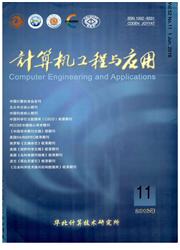

 中文摘要:
中文摘要:
提出一种与主观评价相关性较高的可懂度客观评价算法。传统的基于频域分段信噪比的可懂度评价算法与主观评价的相关性不高,原因在于没有分别计算谱衰减畸变和谱放大畸变这两种畸变。为了克服这一缺点,提出将增强语音分解为衰减畸变、放大倍数小于6.02dB的放大畸变、放大倍数大于6.02dB的放大畸变三部分,分别计算其频域信噪比,用多线性回归方法综合这三种畸变值,使其与主观可懂值的相关值达到最高。实验结果表明,用这种方法对句子的可懂度评价结果与主观评价的相关值达到0.91。
 英文摘要:
英文摘要:
The aim of the present research is to propose a measure to predict noise-suppressed speech which has higher correlation with subjective scores. The traditional frequency-weighted segmental SNR (fSNRseg) measure does not have higher correlations with subjective scores since it does not account for spectral attenuations and spec- tral amplification distortions introduced by speech enhancement algorithms separately. In this study, it decomposes the fSNRseg measure in three regions, corresponding to attenuation distortion only, amplification distortion up to 6.02 dB and distortion of 6.02 dB or greater. It calculates fSNRseg in each region separately. Multiple-regression analysis is run on the three decomposed measures to maximize the correlation with subjective scores. A high correla- tion (0.91 ) is obtained with sentence recognition scores with the proposed objective measure.
 同期刊论文项目
同期刊论文项目
 同项目期刊论文
同项目期刊论文
 Parameter optimization and application of support vector machine based on parallel artificial fish s
Parameter optimization and application of support vector machine based on parallel artificial fish s Study for classification of emotional speech by using optimized frame zero crossing with peak amplit
Study for classification of emotional speech by using optimized frame zero crossing with peak amplit A robust feature extraction approach based on an auditory model for classification of speech and exp
A robust feature extraction approach based on an auditory model for classification of speech and exp 期刊信息
期刊信息
